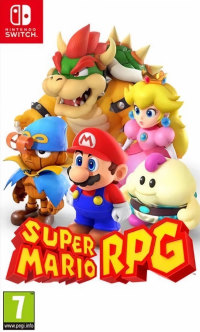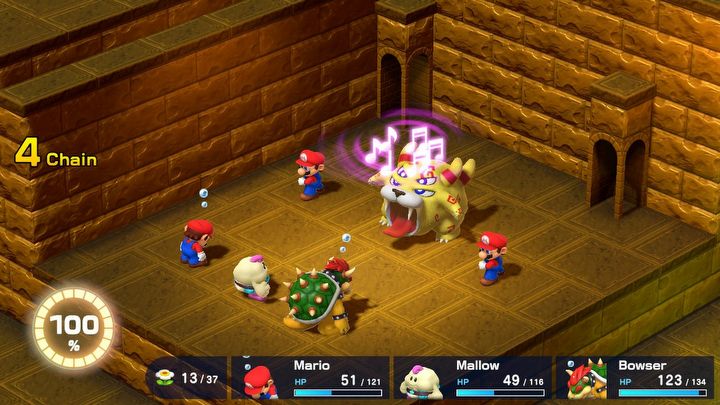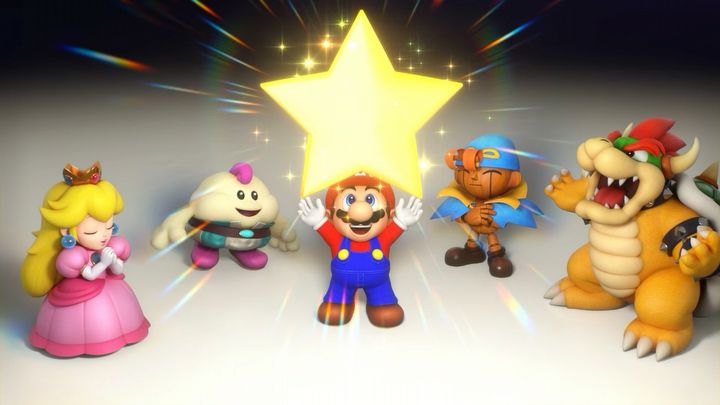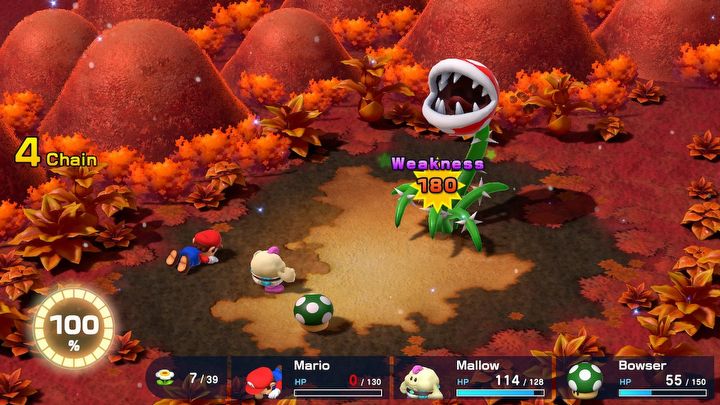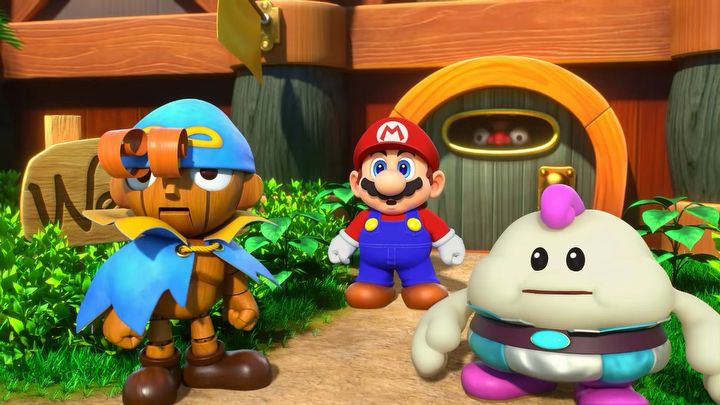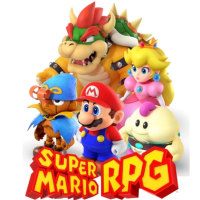Super Mario RPG Review: A Nintendo Classic Revisited
Nearly 30 years old, Super Mario RPG is a classic that serves as Nintendo’s first true RPG. Does this remake do it justice or was it unnecessary? Read our review to find out!
The review is based on the Switch version.
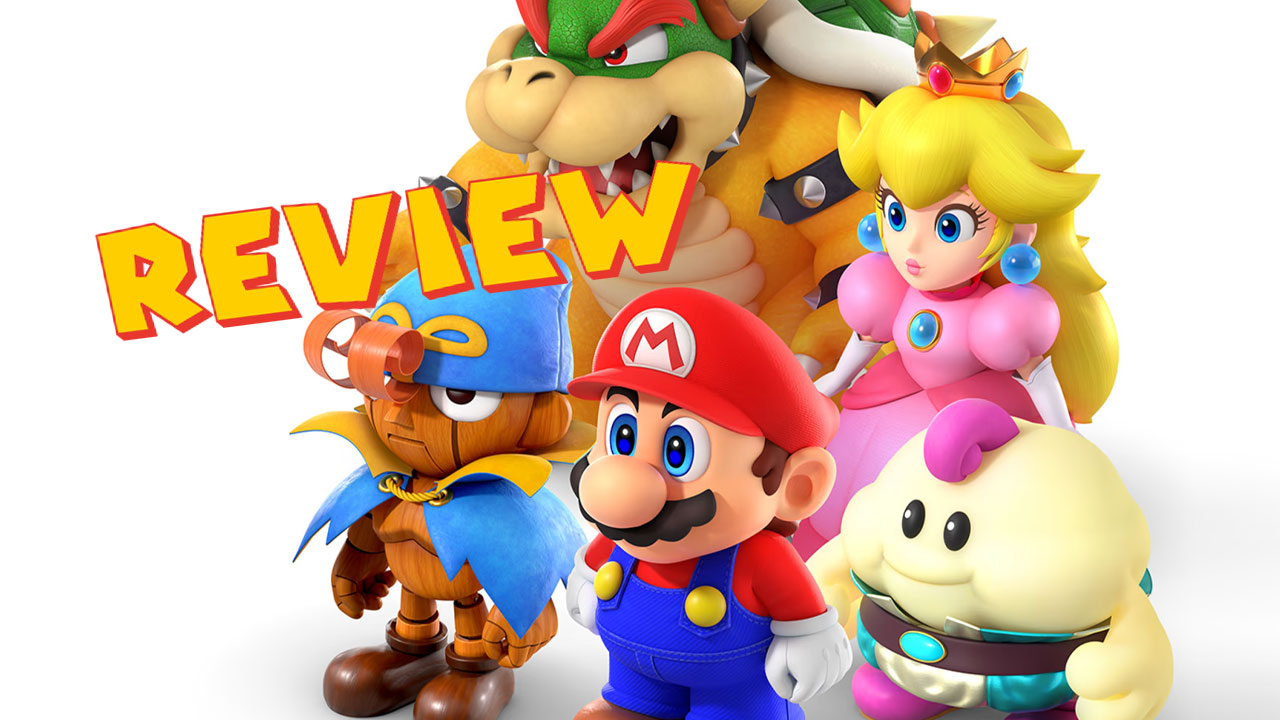
Super Mario RPG is one of those games that I replay every now and then and still find joy from the experience. It’s a breeze to play through, offers a story that isn’t longwinded and gets the point, and features a combat system that doesn’t bog you down with too many spells, items, or fancy mechanics. Not everyone may have had the chance to play it when it first came out on the SNES nearly 30 years ago, so a remake makes total sense. It lets a new generation of players discover why the game is such a classic while older gamers get to feel a little nostalgic again.
- A classic story that continues to be charming, funny, and inviting
- Updated visuals bring life to a game you thought you knew
- A remastered soundtrack amplifies the mood of the game
- Combat adjustments make battles seem easier than the original
- Visuals are great but don’t compare to more recent Switch titles
When it came out back in 1996, Super Mario RPG was Nintendo’s first dabbling with the genre meaning it wasn’t as intricate as Final Fantasy, but it did set itself apart as being the first turn-based RPG featuring the iconic plumber. This remake doesn’t make the same impact that the original did decades ago but it’s still a joy to play. Add in a fresh coat of paint, some quality-of-life tweaks, and a beautifully arranged soundtrack and you get a game that will make you happy you played it—whether it’s your first, or seventh time.
Setting the Stage and Enhancing It
If you’ve played Super Mario RPG before, you already know it is one quirky game. And if you haven’t, get ready to meet a cloud-like mage who thinks he’s a tadpole, a bearded man-child who wants to marry Peach, and a sentient wedding cake you need to beat up. Its cast ranges from the familiar to the bizarre, so while you may be riding Yoshi one second, you’ll be fighting a creepy marionette in the desert the next. This mix-up brings humor and levity to the story and makes for a game that doesn’t take itself too seriously but still features some memorable scenes and developments throughout its 12-hour run.
Unchanged from the original, the game’s plot consists of Mario and his friends on a mission to save the Mushroom Kingdom from being invaded by an army of weapon-based enemies. You quickly gain party members as you play and will end up with Mario, Mallow, Geno, Bowser, and Peach in your party, each bringing something unique to a battle as well as providing you with someone to root for. Poor Bowser is homeless through most of the game so you can’t help but feel bad for him, for example. Even the bosses you meet have something quirky about them that make them memorable even if they only exist for you to destroy them.
While the narrative remains consistent, new cutscenes sprinkled here and there amplify the importance of certain moments in the story. The scene when Geno wakes up is captured so beautifully as are new moments added near the end of the game that bookend the party’s journey together. These cutscenes along with the game’s beautifully arranged soundtrack provide the game with a majestic feel to it that hits differently on the Switch.
Visually, the game’s pixelated models and backdrops have been upgraded for a new generation but they still retain the same size and dimension of the SNES version. This means characters still retain their chibi-style but feature even more emotion in their expressions. Even the game’s backdrops and enemies feature so much more detail that you now make out things you never could in the original. When compared to other Switch RPGs, however, the game seemingly could have totally done more to take its presentation to the next level. It’s definitely what you would expect from a safe Switch port, but it doesn’t fully utilize the system’s potential.
Combat Tweaked and Adjusted
Entering fights still means making contact with an enemy and engaging in turn-based combat with three characters from your party. The original didn’t let you swap out characters mid-battle, but you now can make it so much easier to survive certain bosses simply by swapping out to healers Mallow or Peach and using their white magic spells to keep everyone alive. Even when a character is down, the game lets you swap them out for someone who can still fight—something you could never do on the SNES.
In all honesty, the SNES version wasn’t very difficult for an RPG at the time as it followed a very linear format not just with its story but also in how your characters leveled up. Naturally, each one plays a role in your party, so don’t expect Peach to be more than the de facto healer and Bowser the heavy-hitting tank. Even the weapons and armor you get as you play make sense for you to buy when you find them, so there isn’t too much thought going into customizing your party. Deep strategizing was never a necessity back then, and even now the game makes it easier to win a fight.
What stays consistent is that attacking an enemy also gives you the chance to time your button input just right to do extra damage. The original also had this feature that allowed you to do extra damage or minimize the amount of damage to your character by pressing the button at the right moment. There’s no penalty for messing up, but getting that perfectly-timed strike always feels good and can definitely turn the tide of battle when you survive death by defending like a pro.
The difference here is that timing your hits just right causes splash damage to enemies around you, meaning that battles can be a lot quicker if you time your hits correctly and plan ahead to defeat enemies in the most opportune ways. You can now also perform Triple Move Attacks once your gauge fills up as you deliver hits. These moves are unique depending on who are your active party members and can provide some clutch support when you need it.
Final Thoughts
These changes make Super Mario RPG feel easier than it did playing it on the SNES as you can defeat enemies more quickly. It doesn’t take away from the experience, but the remake does feel like it was geared towards a younger audience considering the number of ways it makes the game feel more accessible to someone who perhaps isn’t familiar with RPGs. Auto-saving is a thing, and there is even an easier difficulty level that makes combat almost nonexistent.
It may not shake things up too much, but the shining force behind Super Mario RPG is that it showcases all the great aspects of the original and now lets a whole new audience enjoy it for themselves.
You can find all our reviews on Metacritic and Opencritic.
All of these tweaks don’t stop the game from being fun, however, as you still have to use strategy during the more inventive boss battles and you can still die if you don’t learn an enemy’s attack patterns. New, more formidable enemies can also appear randomly during a fight adding some challenge to regular battles, and beating the game allows you to unlock some new content that didn’t exist in the original. I won’t spoil too much of what you can expect, but it does involve more difficult battles that force you to think a lot more when planning your attacks. These are welcome additions for older players wanting more of a challenge and great for budding RPG fans wanting to take everything they learned and put it to practice.
I actually didn’t think a remake of Super Mario RPG was necessary considering how great and timeless the original has always felt. It’s always been one of those games that I could easily play and enjoy whenever because it wasn’t too difficult and didn’t take too long to complete. The remake still offers that same charm with even more details to appreciate even though it could have done more to elevate the original even further. It’s a more accessible game, for sure, and its new features offer a few more hours of post-credits fun to longtime fans. It may not shake things up too much, but the shining force behind Super Mario RPG is that it showcases all the great aspects of the original and now lets a whole new audience enjoy it for themselves.
Super Mario RPG
Super Mario RPG Review: A Nintendo Classic Revisited
Nearly 30 years old, Super Mario RPG is a classic that serves as Nintendo’s first true RPG. Does this remake do it justice or was it unnecessary? Read our review to find out!
